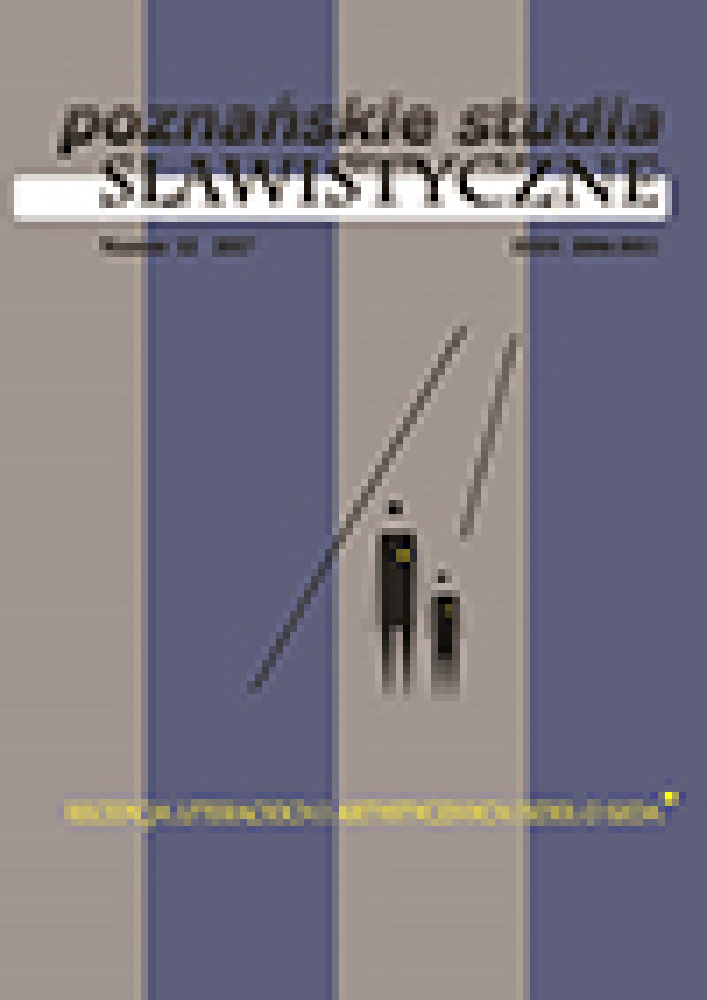Abstract
The theme of the paper is observing and revealing non-pragmatic language that, when dealing with deliberately chosen texts about acts of violence, leads to productive aesthetic disturbance. In its substance, this language refers to the gulf between intensity of representation and ideological intention towards a reader declared in a complicated manner. The paper discusses five texts with the theme of the Holocaust. Three of them deal with the Holocaust as with a recent experience, namely Curzio Malaparte’s Caput (1944), Žofia Nalkowska’s Medallions (1945), and Leopold Lahola’s Last Thing (1949–1956, published in a book in 1968); whereas two other ones deal with the Holocaust after some time in a form of belles-lettres memoirs or testimony, namely Juraj Špitzer’s I Did Not Want to Be a Jew (1994) and Jerzy Kosiński’s Painted Bird (in English in 1965, Czech translation was published in 2011). All interpreted texts are marked by specific language situated beyond the border of traditional literary representation. This language is either extremely subjective, expressive and periphrastic – in this case it borders on with absurd Realism or nonsense (in case of C. Malaparte, J. Kosiński, and L. Lahola) – or, in its neutral representation (in case of Ž. Nalkowska, and J. Špitzer), it borders on with a melancholic self-referential document on limits of cultural humanism or of normal, common humanity.References
Arendtová H., 1995, Eichman v Jeruzalémě, prel. Martin Palouš, Praha.
Bauman Z., 2002, Modernost’ a holokaust, prel. M. Chorváthová, Bratislava.
Kudrna J., 1988, Malapartúv absurdní realismus, v: C. Malaparte, Kaput, Praha, s. 435–441.
Kundera M., 2009, Zahradou těch, které mám rád, Praha.
Lévinas E., 1994, Etika a nekonečno, prel. V. Dvořáková, M. Reichert, Praha.
Prušková Z., 1996, Vysloviteľnosť nevyslovyteľného alebo štrnásť noviel Leopolda Laholu, „Česká literature” č. 3, s. 309–319.
Prušková Z., Lahola L., 2006, Posledná vec, v: Slovník diel slovenskej literatúry 20. Storočia, Bratislava, s. 231–233.
Prušková Z., 2007, Príbehy bez šťastných koncov. Dokument, autobiografia, beletrizovaná spomienka a fikcia ako zdroje pre obranu pamäti, v: Holokaust v české, slovenské a polské literatuře, ed. J. Holý, Praha, s. 69–77.
Špitzer J., 1994, Exil v exile, v: L. Lahola, Posledná vec, Bratislava, s. 5–22.
License
Copyright (c) 2017 Zora Prušková

This work is licensed under a Creative Commons Attribution-NoDerivatives 4.0 International License.
